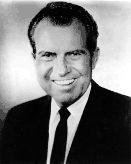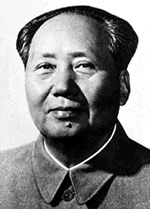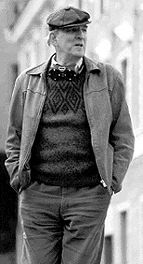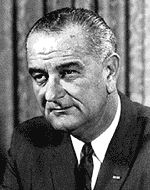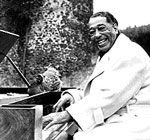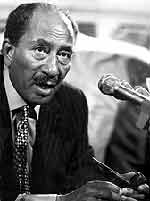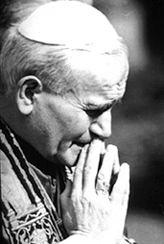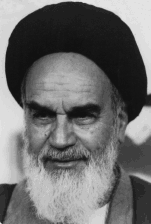1970 – 1979 World History
- 1970
- Biafra surrenders after 32-month fight for independence from Nigeria (Jan. 15). Rhodesia severs last tie with British crown and declares itself a racially segregated republic (March 1). U.S. troops invade Cambodia (May 1). Four students at Kent State University in Ohio slain by National Guardsmen at demonstration protesting incursion into Cambodia (May 4). Senate repeals Gulf of Tonkin resolution (June 24).
- 1971
- Supreme Court rules unanimously that busing of students may be ordered to achieve racial desegregation (April 20). Anti-war militants attempt to disrupt government business in Washington (May 3)—police and military units arrest as many as 12,000; most are later released. Pentagon Papers published (June). Twenty-sixth Amendment to U.S. Constitution lowers voting age to 18. UN seats Communist China and expels Nationalist China (Oct. 25).
- 1972
- President Nixon makes unprecedented eight-day visit to Communist China and meets with Mao Zedong (Feb. 21–27). Britain takes over direct rule of Northern Ireland in bid for peace (March 24). Gov. George C. Wallace of Alabama is shot by Arthur H. Bremer at Laurel, Md., political rally (May 15). Five men are apprehended by police in attempt to bug Democratic National Committee headquarters in Washington, D.C.'s Watergate complex—start of the Watergate scandal (June 17). Supreme Court rules that death penalty is unconstitutional (June 29). Eleven Israeli athletes at Olympic Games in Munich are killed after eight members of an Arab terrorist group invade Olympic Village; five guerrillas and one policeman are also killed (Sept. 5). “Christmas bombing” of North Vietnam (Dec. 25).
- 1973
- Great Britain, Ireland, and Denmark enter European Economic Community (Jan. 1). Supreme Court rules on Roe v. Wade (Jan. 22). Vietnam War ends with signing of peace pacts (Jan. 27). Nixon, on national TV, accepts responsibility, but not blame, for Watergate; accepts resignations of advisers H. R. Haldeman and John D. Ehrlichman, fires John W. Dean III as counsel (April 30). Greek military junta abolishes monarchy and proclaims republic (June 1). U.S. bombing of Cambodia ends, marking official halt to 12 years of combat activity in Southeast Asia (Aug. 15). Chile's Marxist president, Salvadore Allende, is overthrown (Sept. 11). Fourth and biggest Arab-Israeli conflict begins as Egyptian and Syrian forces attack Israel as Jews mark Yom Kippur, holiest day in their calendar (Oct. 6). Spiro T. Agnew resigns as vice president and then, in federal court in Baltimore, pleads no contest to charges of evasion of income taxes on $29,500 he received in 1967, while governor of Maryland. He is fined $10,000 and put on three years' probation (Oct. 10). In the “Saturday Night Massacre,” Nixon fires special Watergate prosecutor Archibald Cox and Deputy Attorney General William D. Ruckelshaus; Attorney General Elliot L. Richardson resigns (Oct. 20). Egypt and Israel sign U.S.-sponsored cease-fire accord (Nov. 11). Duke Ellington's autobiography, Music Is My Mistress, is published.
- 1974
- Patricia Hearst, 19-year-old daughter of publisher Randolph Hearst, kidnapped by Symbionese Liberation Army (Feb. 5). House Judiciary Committee adopts three articles of impeachment charging President Nixon with obstruction of justice, failure to uphold laws, and refusal to produce material subpoenaed by the committee (July 30). Richard M. Nixon announces he will resign the next day, the first president to do so (Aug. 8). Vice President Gerald R. Ford of Michigan is sworn in as 38th president of the U.S. (Aug. 9). Ford grants “full, free, and absolute pardon” to ex-president Nixon (Sept. 8).
- 1975
- John N. Mitchell, H. R. Haldeman, John D. Ehrlichman found guilty of Watergate cover-up (Jan. 1); sentenced to 30 months to 8 years in jail (Feb. 21). Pol Pot and Khmer Rouge take over Cambodia (April). American merchant ship Mayaguez, seized by Cambodian forces, is rescued in operation by U.S. Navy and Marines, 38 of whom are killed (May 15). Apollo and Soyuz spacecraft take off for U.S.-Soviet link-up in space (July 15). President Ford escapes assassination attempt in Sacramento, Calif. (Sept. 5). President Ford escapes second assassination attempt in 17 days (Sept. 22).
- 1976
- Supreme Court rules that blacks and other minorities are entitled to retroactive job seniority (March 24). Ford signs Federal Election Campaign Act (May 11). Supreme Court rules that death penalty is not inherently cruel or unusual and is a constitutionally acceptable form of punishment (July 3). Nation celebrates bicentennial (July 4). Israeli airborne commandos attack Uganda's Entebbe Airport and free 103 hostages held by pro-Palestinian hijackers of Air France plane; one Israeli and several Ugandan soldiers killed in raid (July 4). Mysterious disease that eventually claims 29 lives strikes American Legion convention in Philadelphia (Aug. 4). Jimmy Carter elected U.S. president (Nov. 2).
- 1977
- First woman Episcopal priest ordained (Jan. 1). Scientists identify previously unknown bacterium as cause of mysterious “legionnaire's disease” (Jan. 18). Carter pardons Vietnam draft evaders (Jan. 21). Scientists report using bacteria in lab to make insulin (May 23). Supreme Court rules that states are not required to spend Medicaid funds on elective abortions (June 20). Deng Xiaoping, purged Chinese leader, restored to power as “Gang of Four” is expelled from Communist Party (July 22). South African activist Stephen Biko dies in police custody (Sept. 12). Nuclear-proliferation pact, curbing spread of nuclear weapons, signed by 15 countries, including U.S. and USSR (Sept. 21).
- 1978
- President chooses Federal Appeals Court Judge William H. Webster as F.B.I. Director (Jan. 19). Rhodesia's prime minister Ian D. Smith and three black leaders agree on transfer to black majority rule (Feb. 15). U.S. Senate approves Panama Canal neutrality treaty (March 16); votes treaty to turn canal over to Panama by year 2000 (April 18). Former Italian premier Aldo Moro kidnapped by left wing terrorists, who kill five bodyguards (March 16); he is found slain (May 9). Californians in referendum approve Proposition 13 for nearly 60% slash in property tax revenues (June 6). Supreme Court, in Bakke case, bars quota systems in college admissions but affirms constitutionality of programs giving advantage to minorities (June 28). Pope Paul VI, dead at 80, mourned (Aug. 6); new Pope, John Paul I, 65, dies unexpectedly after 34 days in office (Sept. 28); succeeded by Karol Cardinal Wojtyla of Poland as John Paul II (Oct. 16). “Framework for Peace” in Middle East signed by Egypt's president Anwar Sadat and Israeli premier Menachem Begin after 13-day conference at Camp David led by President Carter (Sept. 17). Jim Jones's followers commit mass suicide in Jonestown, Guyana (Nov. 18).
- 1979
- Oil spills pollute ocean waters in Atlantic and Gulf of Mexico (Jan. 1, June 8, July 21). Ohio agrees to pay $675,000 to families of dead and injured in Kent State University shootings (Jan. 4). Vietnam and Vietnam-backed Cambodian insurgents announce fall of Phnom Penh, Cambodian capital, and collapse of Pol Pot regime (Jan. 7). Shah leaves Iran after year of turmoil (Jan. 16); revolutionary forces under Muslim leader, Ayatollah Ruhollah Khomeini, take over (Feb. 1 et seq.). Nuclear power plant accident at Three Mile Island, Pa., releases radiation (March 28). Conservatives win British election; Margaret Thatcher new prime minister (May 3). Carter and Brezhnev sign SALT II agreement (June 14). Nicaraguan president Gen. Anastasio Somoza Debayle resigns and flees to Miami (July 17); Sandinistas form government (July 19). Earl Mountbatten of Burma, 79, British World War II hero, and three others killed by blast on fishing boat off Irish coast (Aug. 27); two I.R.A. members accused (Aug. 30). Iranian militants seize U.S. embassy in Tehran and hold hostages (Nov. 4). Soviet invasion of Afghanistan stirs world protests (Dec. 27).
| 1960 – 1969 World History | 1900–1999 (A.D.) World History | 1980 World History |

